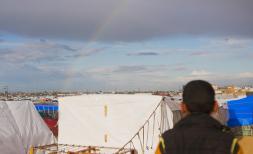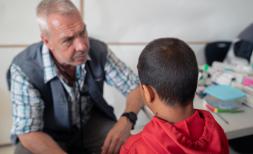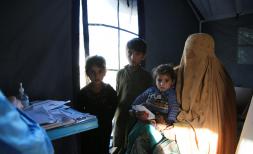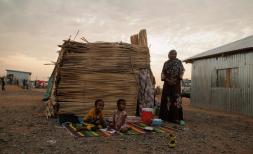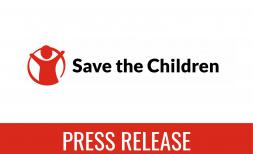Half of Lebanese children now need support due to food, healthcare shortages – new data
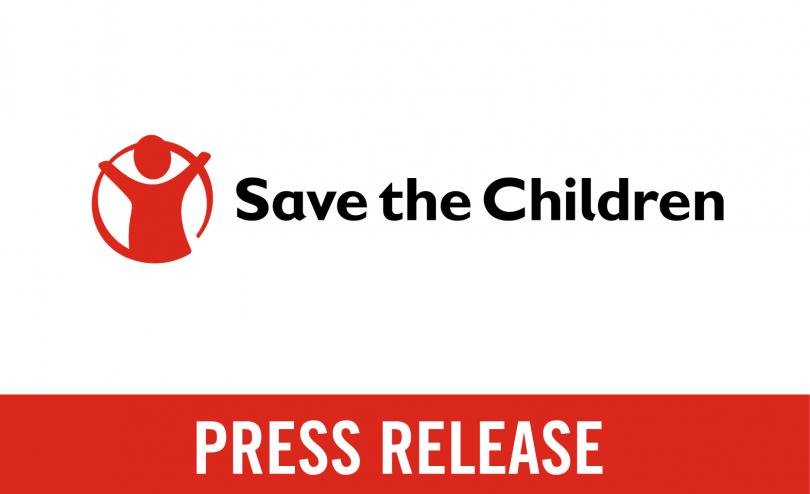
BEIRUT, 14 April 2022 – Half of Lebanese children – or about 700,000 - are now in need of humanitarian aid, with thousands at risk of malnutrition as the war in Ukraine threatens to further exacerbate a national food crisis, Save the Children warned after the release of new data.
New UN figures released today showed that more than 2 million Lebanese people – about 57% of the population – are now living in vulnerable situations with three in every four households – or 77%[1] - not having enough money to buy food.
This is in addition to the 1.8 million refugees and migrants living in Lebanon, including 700,000 Syrian refugee children already facing dire conditions. About 99% of Syrian households[1] do not have enough money to buy food.
The conflict in Ukraine has deepened a food crisis in Lebanon that was triggered in autumn 2019 as the country sank into one of the world’s worst financial crises in modern history[2].
The cost of food has surged 396% in one year with prices rising further since the war started on 24 February as 95% of Lebanon’s wheat is imported from Russia and Ukraine. The cost of bread has risen by 38% in the past six weeks. The price of sunflower oil and sugar has jumped by 88% and 72% respectively[3].
The rising cost of food will likely exacerbate nutrition and health needs across Lebanon. Without urgent action, children will continue to bear the brunt of Lebanon’s worsening poverty crisis with more than 200,000 children already suffering from malnutrition and 7% of all children stunted, an indicator of chronic malnutrition.
Mahasen*, 32, lives with her husband and three children in Akkar, Lebanon, where they now face a daily battle of survival. They can only afford one meal a day, which usually consists of lentils.
“Every day I wake up with one fear: what will my family eat today? Now during Ramadan, my fears are multiplied. My children are withering in front of my eyes; my two-year-old son has never had milk before,” said Mahasen. “My children are keeping a tight lid on their emotions and thoughts, for fear of adding more to our plates. Children should be able to live freely but that’s not the case in Lebanon anymore.”
Since autumn 2019, Lebanon’s currency has lost more than 90% of its value and public services have all but collapsed, with severe electricity, water, medicine and food shortages, and constant strikes by civil servants and teachers, as a result.
Zeina*, 37, lives in Beirut with her husband and three children. She explained that before Lebanon’s economic meltdown, her family used to be considered middle class, which no longer exists in Lebanon. Over three quarters of the population has been pushed into poverty in the past two years.
“I work all month to make the US$33 we need to pay rent. We depend on the two hours of electricity the government provides,” said Zeina. “Over the past year, we’ve made so many sacrifices and cuts, but it’s never enough. I still can’t afford to buy hygiene pads for my daughters, so on those days, she doesn’t go to school. Sometimes, it feels like we’re living in humiliation.
“My son keeps asking me if he can drop out of school and start working so he can help us. I fear that with how drastic our situation is getting, how dangerously close we are to breaking, my husband and I might resort to that.”
COVID-19 school closures and the collapse of Lebanon’s economy have forced desperate families to send their children out to work. According to the UN, around 334,000 children are now in need of child protection related services.
Jennifer Moorehead, Save the Children’s Country Director in Lebanon, said:
“This new data lays bare the scale of humanitarian needs and the rapidly deteriorating situation across Lebanon.
“The country faces an irreversible decline in living conditions for children and families that will take generations to recover from if we don’t act now. This is a children’s crisis, with children’s lives and futures at stake.
“Save the Children is calling for urgent action and long-term, sustainable solutions to respond to this humanitarian crisis. The government of Lebanon and the international community must work together on ensuring essential services do not collapse, and to shoring up household resilience. Without this, we will be putting even more children's lives - and futures - at risk.”
Save the Children is supporting families like Mahasen*’s and Zeina*’s through a “cash plus” approach that combines cash transfers, financial counselling, nutrition counselling, mental health support and case management referrals where needed, to ensure that all children and their families in Lebanon can survive and thrive.
ENDS
Notes to editor:
- OCHA Lebanon’s Increasing humanitarian needs report: https://reliefweb.int/report/lebanon/increasing-humanitarian-needs-lebanon-april-2022-enar
- More than 1.7 million refugees and migrants live in Lebanon: 1.5 million Syrian refugees, over 200,000 Palestinian refugees - and 85,000 migrants.
- An estimated 3.9 million Lebanese - 2 million female and 1.9 million male - live in Lebanon. Among them, around a third are children (1.3 million). According to UN data, 660,000 children need humanitarian aid, or about 50% of Lebanese children.
- According to the data, 334,000 Lebanese and Palestinian children in Lebanon are now in need of child protection related services.
- The Multi-Sector Needs Analysis (MSNA) data collection took place between October and December 2021 with the support of twelve local and international NGO partners and UN agencies, including Save the Children.
- The MSNA data covers Lebanese, Palestinian refugee and migrant groups. The Vulnerability Assessment of Syrian refugees in Lebanon (VASyr) shows that the situation of Syrian refugees also continues to worsen.
- Save the Children has been working in Lebanon since 1953. For over six decades, we have used rights-based approaches to increase access by children, adolescents, and youth to quality education; to strengthen child participation and protection at the family, school and community levels; and to increase food security and access to livelihood opportunities, clean water and proper shelter. We support Lebanese communities and Syrian and Palestinian refugee children and families.
